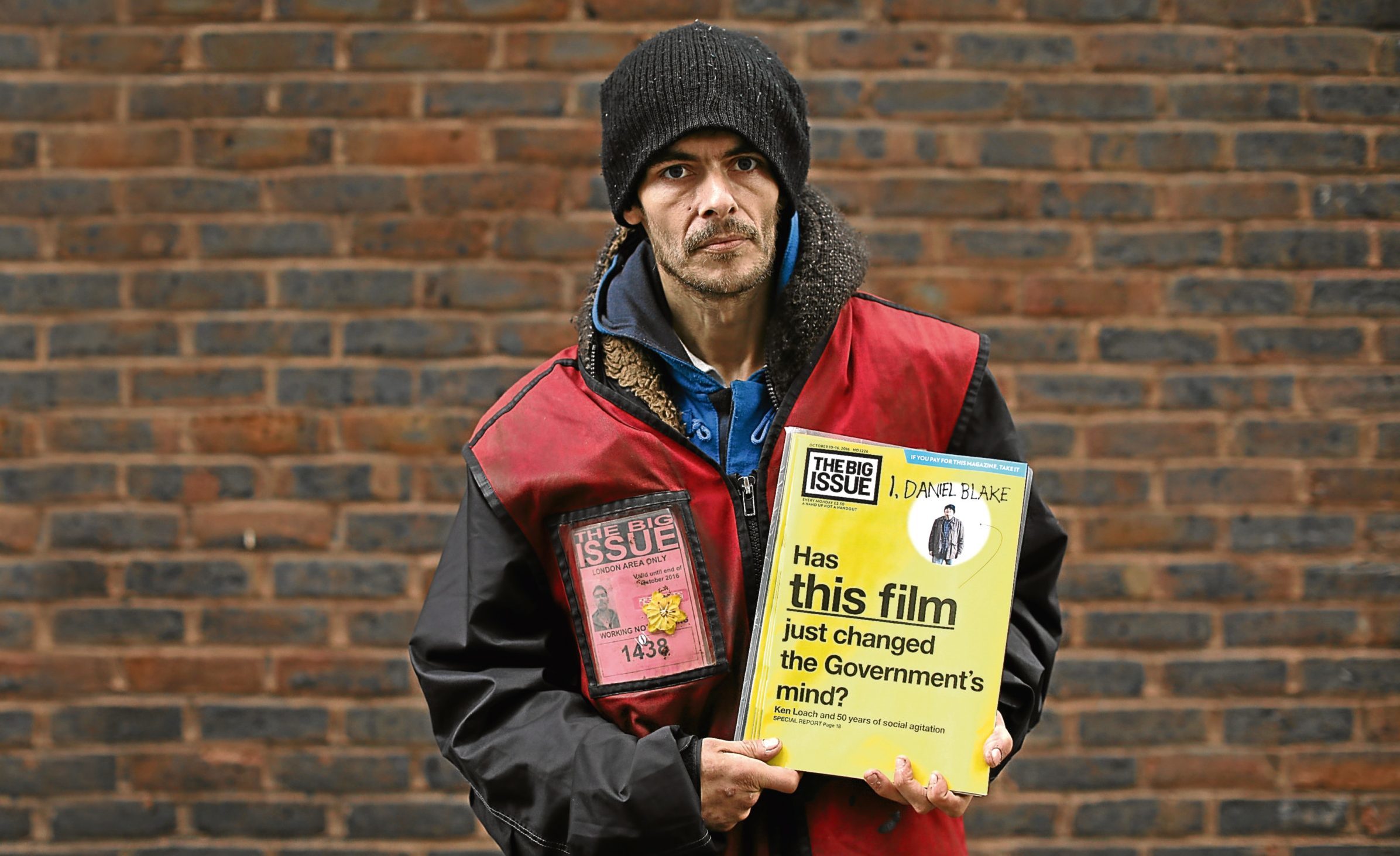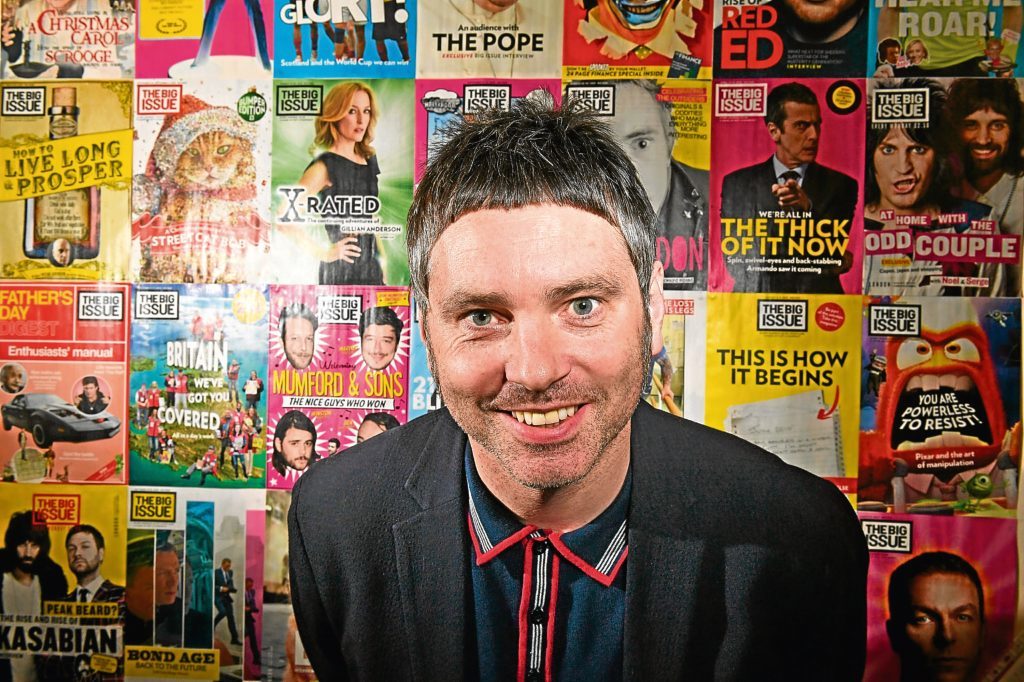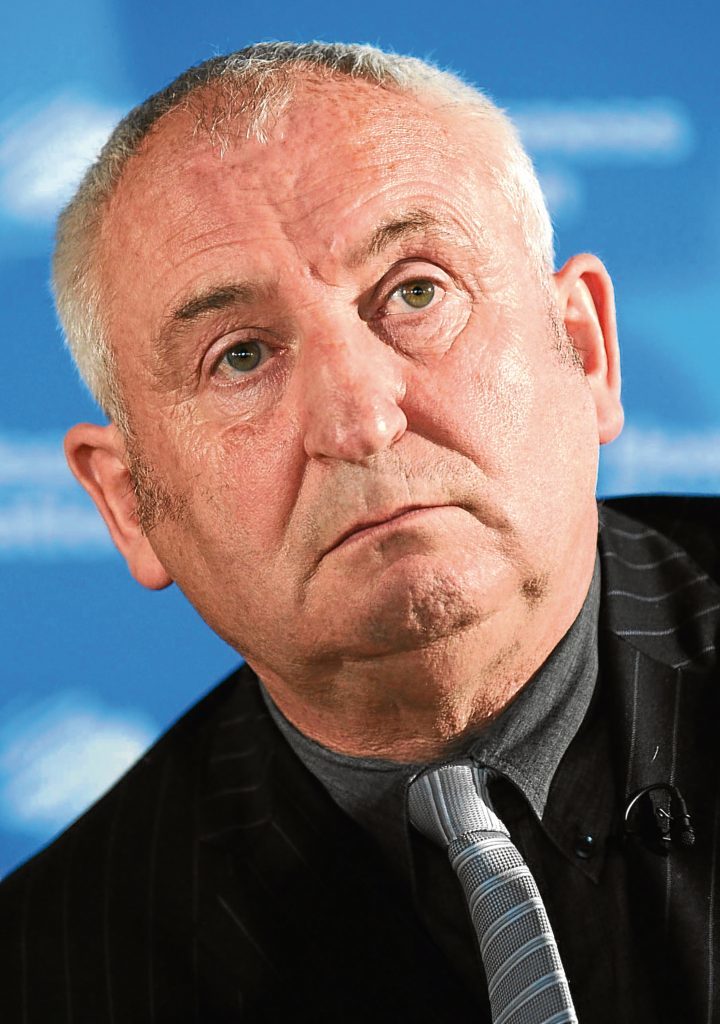
THE man who changed how we think of homeless people has admitted he wasn’t sure his idea would take off in the first place.
Lord John Bird of Notting Hill, to give him his House of Lords title, founded The Big Issue with Gordon Roddick, future husband of the late Body Shop boss Anita, in 1991.
As he explains, they first met when John was in the midst of troubles with the cops, sleeping rough, debt and every other problem you could imagine.
“It was probably the only publication to be started that everyone doubted, the homeless themselves, the organisations, and myself!” John laughs about those small beginnings 26 years ago.
“The only person who thought it would flourish was Gordon Roddick, who I had met in Edinburgh when I was 21, hiding there from the London police!
“We became great mates, after meeting in Paddy’s Bar, and then I didn’t see him for 20 years, by which time he had become a multi-millionaire.
“He was the one who gave us the money to start The Big Issue, and I had said to him it was a really perilous job, with a workforce that would be so unreliable, and so screwed up.
“But he just said to give it our best shot and if it didn’t work, it didn’t work.
“Gordon was the upbeat geezer, not me, so in the end it was his money and my cheek, my determination to get people out of the trouble they were in — because that was where I had started life, too.”
Born into a poor London Irish family, John had been homeless by the time he was five, lived in an orphanage from the age of seven to 10, and was excluded from school.
He learned to read and write in prison, and eventually took his own messy life by the scruff, becoming a printer and giving himself the right skills to launch a new, totally-different paper, monthly and later weekly, now copied around the globe.
The Big Issue concept was that vendors would sell a copy, give the paper half the money, and keep the other half for themselves, gradually becoming more independent.
Despite John’s original misgivings, it has proved a sensational success.
“Within a few years of getting out of all that, I thought: ‘If I can get out, I can help get other people out, too,’” says John.
“I realised that if you give somebody a job, a legal means to make their own money, you can then move them on to getting rid of the drink or drugs, robbing, whatever harm they are doing to themselves.
“It was a very simple device for reducing crime in our city centres.
“With the exception of one or two British police forces, most of the Old Bill get it.
“They’ll say: ‘You’re doing our work for us!’
“That is why we are respected by the boys on the beat more than anybody else.”
As John’s extraordinary idea began to pan out to perfection, with huge sales and so many people turning their lives around, John observed how Britain got used to the idea of people who’d been sleeping rough suddenly selling them newspapers.
“You can’t cheat the public for very long, and you can’t sell newspapers aggressively for very long,” he points out.
“What happened was that the public came to the vendors.
“These were people who had been self-harming, outrageous, self-defeating, and now they were being changed by the public, who became like 500,000 social workers!
“I was with a vendor the other night, and I could tell he still had a few problems with the drink.
“I asked him: ‘What is the best thing about this, is it the money?’
“He told me: ‘No, I’ve always been able to make money.
“‘It’s the respect I get from members of the public — people I don’t know, and my regulars are like the family I never had.’
“This was a guy who’d been abused by his parents, went into local authority care, was then in the Army for 15 years, came out, fell into the street, drink, drugs, and gradually got himself out,” reveals John.
“When he talks to me, he doesn’t speak like I’m his guv’nor, it’s more like I’m his uncle — probably now his grandad, actually!
“So it’s all about the battles against isolation, loneliness, sorting out the things adults did to you, all the grief that takes a lifetime to get it all out.”
It’s heartening and inspiring to know that a man with the past John has, and his astounding story with The Big Issue, is now in among the powerbrokers in the House Of Lords.
He’s definitely no posh chap in tweed plus-fours, and his track record demonstrates he isn’t in it for the money.
So how does the 71-year-old feel when he looks at the peers and famous people around him?
“I was in a debate the other night, and one Lord was asking me: ‘How can we prevent girls getting pregnant just so they can get a council house?’” recalls John.
“He thought the only way might be to stop them having this right.
“I asked him if he didn’t think it would be better to stop them getting pregnant in the first place, but he explained we had tried sex education before and it simply hadn’t worked.
“So I told him one thing — up in the north of England, this local school started to send children at 11, 12, 13 to a local nursery for two afternoons a month, and they had to look after six-month-olds and nine-month-olds.
“The pregnancy rate fell by something like 60%!
“These young people realised what a bundle of energy babies were, and how on Earth could you do that and have fun at that age?
“Sadly, though, the funding for this was removed.
“That Lord said to me: ‘Wow, I’m going to look into this!’
“Now, there’s a man in charge of it with money and power and prestige in the medical business.
“So then I told the Lord something else.
“I explained that the National Health Service spends 0.5% of its budget on illness prevention.
“In 1948, when I was two, it was between 12 and 20%, depending on location.
“I want The Big Issue to be more about where the solutions are rather than being all about problems.
“Every conceivable answer to each problem is out there.”

Enjoy the convenience of having The Sunday Post delivered as a digital ePaper straight to your smartphone, tablet or computer.
Subscribe for only £5.49 a month and enjoy all the benefits of the printed paper as a digital replica.
Subscribe
